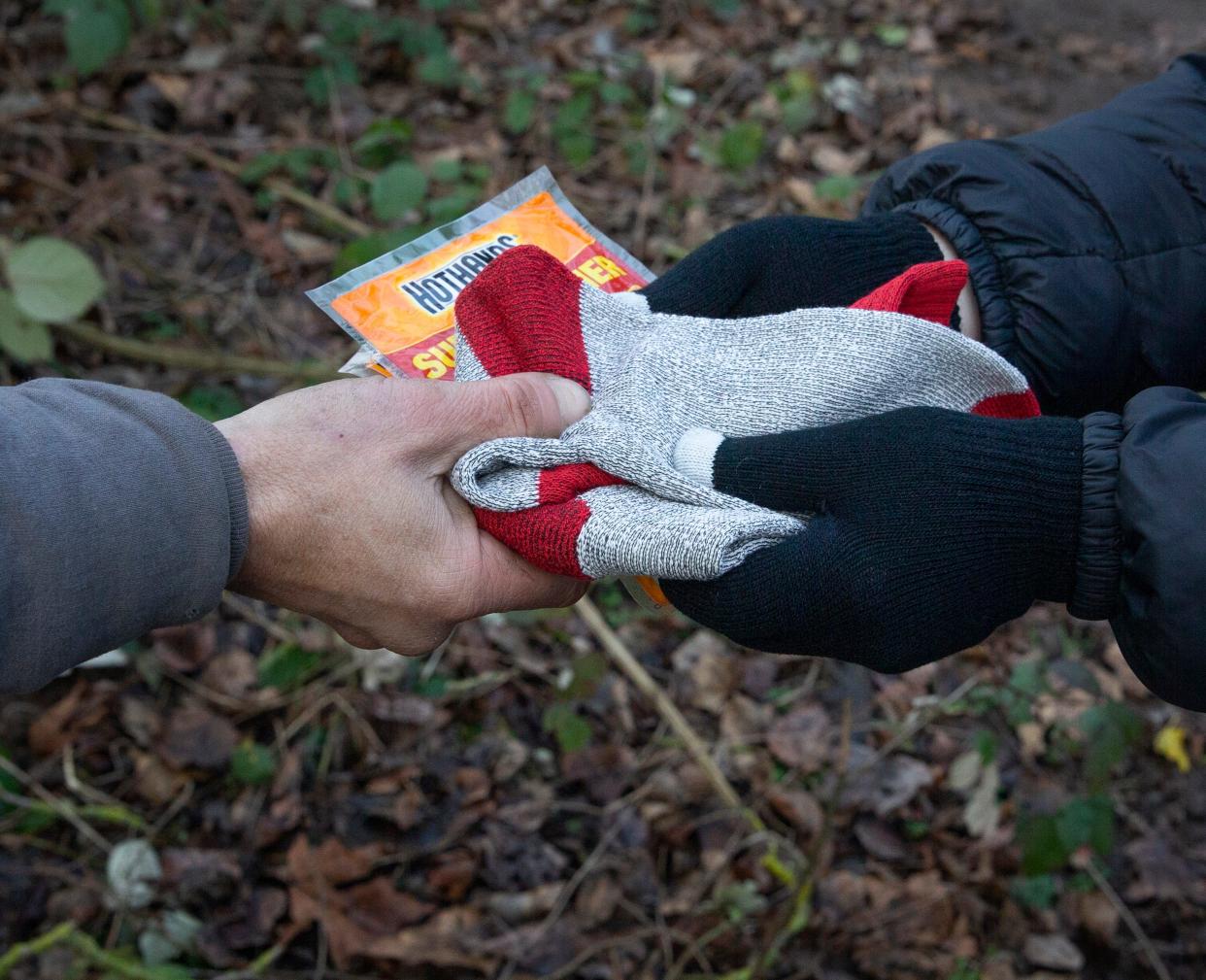Springfield officials consider camping regulations in other Oregon cities

Springfield officials looking at changes to ordinances about sleeping on public property to comply with federal court rulings and a new state law said they like some elements of what other cities have done.
An Oregon state law passed in 2021 prohibits cities from banning camping or sleeping in public spaces, though it allows for regulations that most people, including those experiencing homelessness, would consider fair.
Cities must update their ordinances and policies by July, or otherwise ensure they comply with the new state law that’s similar to requirements of federal court rulings.
From a 24-hour limit on sleeping in one place to protections for waterways, regulations enacted by other Oregon cities provide options similar to a paint palette, Councilor Joe Pishioneri said.
“There’s no clear color, but what is clear to me is everybody’s trying,” he said.
Springfield officials can pick and choose what works for the city out of examples from Bend, Corvallis, Medford and more, Pishioneri said.
Councilors will continue discussions on the camping ordinance in another work session on March 6.
Why does Springfield's camping ordinance have to change?
Springfield’s ordinance does not comply with the federal court rulings or the new state law because it bans sleeping in anything from a sleeping bag to a lean-to or other structure on public property, City Attorney Mary Bridget Smith told officials late last year.
Rulings in Martin v Boise and Blake v Grants Pass that favor people challenging camping bans have ruled the Eighth Amendment means a governmental entity cannot “criminalize conduct that is an unavoidable consequence of being homeless – namely sitting, lying, or sleeping.”
The decision in Martin adds that reasonable restrictions based on where, when and how people use public spaces might be allowed and that full bans could be allowed if there is enough true access to shelter. That means there are enough shelter beds and there are no barriers to access.
The ruling in Blake adds it doesn’t matter whether a prohibition would mean a civil or criminal violation and that people who must sleep outside can take minimal measures, such as using a sleeping bag or setting up a tent, to keep themselves warm and dry.
For subscribers:Springfield, Eugene reexamining rules banning camping on public property
It also takes into consideration whether people don’t have access to shelter due to gender, age or another constitutionally protected attribute, a lack of sobriety or a criminal record.
House Bill 3115 followed the ruling in Martin and the initial decision in Blake.
The state law, passed during the 2021 legislative session, requires any city or county law regulating the acts of sitting, lying, sleeping or keeping warm and dry outside to be objectively reasonable to people, including those experiencing homelessness.
Smith clarified the scope of the changes is narrow and applies only to publicly owned properties that are open to the public.
Limited shelter options in Springfield
There aren’t many shelter options for people in Springfield, a staff memo reads. The memo notes the options likely don’t comply because they have access limitations.
The memo lists three temporary shelter options and their limitations:
An Egan Warming Center site at the Springfield Memorial Building on A Street is only open as a sheltering option when the forecast calls for temperatures below 30 degrees.
Shankle Brooklyn Street Shelter in Glenwood provides shelter for 12 people at a time based on referral.
A Front Door assessment is available at Catholic Community Services on G Street, but the process doesn’t provide an immediate solution for someone camping on public property.
Springfield also allows religious and social institutions and industrial sites to host up to three people living in vehicles through an overnight parking program, and is temporarily allowing people to live in RVs on private property with permission from the property owner and other requirements.
Regulations in other cities a 'jumping-off point'
Springfield isn’t trying to take a template from anywhere, Smith said, but talking about what others are doing can “be a nice jumping-off point.”
She presented on time, place and manner restrictions in other cities:
Time restrictions included a requirement to move after 24 hours except in certain circumstances and prohibitions limiting camping to overnight hours.
Place restrictions included prohibiting camping in residential areas, near water, on streets, in rights of way, parking lots and close to trails and other park features.
Manner restrictions include limits on the size of sleeping areas and prohibitions on burning, storing personal property and making too much noise after 10 p.m.
Pishioneri liked the 24-hour limit. Smith said that’s intended to prevent established camps, which trigger notification of cleanup and storage requirements under a different state law.
He also said he wants Springfield to protect waterways, especially since the McKenzie River and connected wellheads are the city’s source of drinking water.
Councilor Kori Rodley liked regulations that empower staff to make day-to-day decisions as things like construction and development might change the city’s approach.
It isn't clear yet how changes to the ordinance would impact vehicles and campers. A Springfield officer referenced the camping ban several times recently while telling a woman at risk of homelessness to go to Eugene during a live KEPW interview. That interaction did not come up during the conversation about the ordinance.
What’s next?
The council will provide staff guidance for a proposed ordinance during a work session on March 6.
Staff plan to schedule a public hearing on the ordinance on April 17 and have reserved time during a meeting on May 1 as a placeholder for a second public hearing as needed.
Contact city government watchdog Megan Banta at mbanta@registerguard.com. Follow her on Twitter @MeganBanta_1.
This article originally appeared on Register-Guard: Springfield considers camping rules in other Oregon cities

